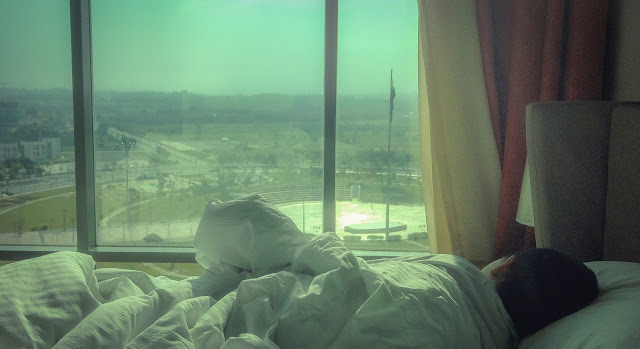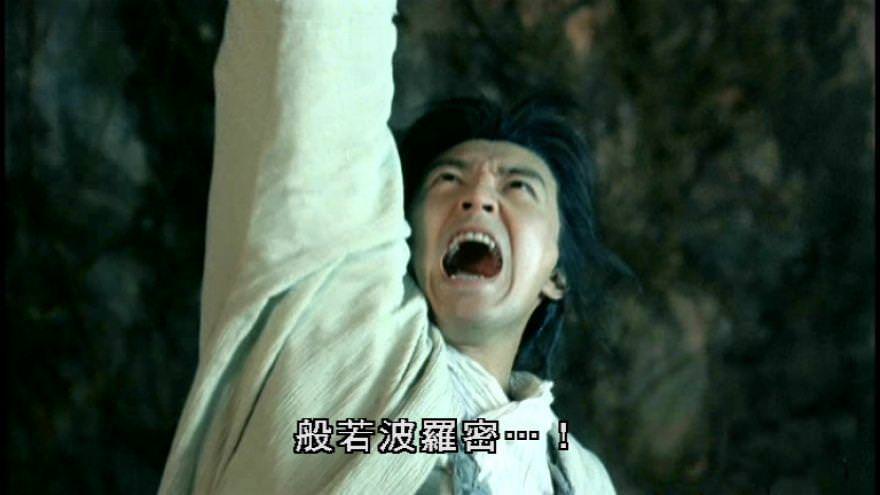Pangkor Conference of January 1874
The following two short notes on the two successive days from January 16 to 17, 1874, are referenced in Charles. D. Cowan (1951) Sir Frank Swettenham's Perak Journals, 1874-1876, Journal of the Malayan Branch of Royal Asiatic Society, 24(4), pp. 139 - 141, which was in turn, extracted from a colonial office paper: Report by Mr. Braddell, Attorney General, of the Proceedings at Pangkor and Larut on the occasion of the visit of Sir A. Clarke in January 1874 (CO 809/1).
They contain quasiverbatim notes taken by Thomas Braddell (1823–1891) when Sir Andrew Clarke was meeting with the Malay chiefs. The essence of this meetup was fossilized three days later on January 20, 1874, and became known as the Pangkor Treaty. These notes appear also in Leon F. Comber (1959) Chinese Secret Societies in Malaya: A Survey of the Triad Society from 1800 to 1900, Donald Moore, Singapore; Cyril N. Parkinson (1960) British Intervention in Malaya, 1867 - 1877, University of Malaya Press, Singapore.
Friday, 16 January 1874. The afternoon session of 16th January was essentially a one-to-one meeting between Mantri Ngah Ibrahim and the Governor of the Straits Settlements, Sir Andrew Clarke. At 3:30 pm, the Mantri came on board and had a long conference. The 49-year-old governor addressed the Mantri, who was approximately ten years his junior, to the effect that the state of Larut must be, to a certain extent, attributed to his vacillating policy,
- by which he had lost the confidence of both parties of Chinese;
- that both sides were willing to abide by Governor Clarke's arbitration;
- that the present state of war and piracy must cease;
- that numerous petitions had been presented by men of both sides against him;
- that the Mantri had made no efforts to restore peace; that his policy and proceeding had been such, and he had shown such conscious weakness that the Governor could no longer permit things to go on in this way, and had come at the request of all parties, Malays and Chinese, to settle matters;
- that the Governor's intervention would be more practically useful if the Mantri candidly and frankly expressed his views, and did not hesitate to state his case, so that the Governor might be fully informed before acting;
- that both parties of the Chinese Headmen had been communicated with, and they were most anxious that anarchy should cease;
- that unaided the Mantri was quite unable to cope with his difficulties.
- and with all the assistance he had received, he had made no real progress in settling the country.
Governor Clarke then said to the Mantri:
“You have asked me to intervene, are you willing now to submit to my arbitration?”
The Mantri expressed his willingness to do so.
“Are you willing to disarm the Hai Sans with whom you are allied, and guarantee that in future you will do your utmost to prevent a recurrence of these disturbance?”
The Mantri fenced with this question, and said that if Government would restore tranquillity by driving out the Ghee Hins 義興公司, he was strong enough to deal with the Hai Sans 海山公司 himself; on this the Governor said:
“You quite misunderstand my view - I do not wish to favour either party, or to drive out either, but to do justice to all. It is by your policy of attempting to play off one party against the other that you have lost your influence, caused difficulties, and prevented a settlement. The Headmen of both parties have agreed to accept my arbitration, are you willing to disarm the Hai Sans?”
The Mantri, after some hesitation, assented.
“Will you agree that no Chinese shall have any employment in Larut which will necessitate their carrying arms?”
The Mantri: Yes.
“It has been suggested to place a British Officer in Larut to assist and advise you. Do you agree to this?”
The Mantri appeared at first to have some objection to this proposal, but at last agreed that a British Officer should be appointed.
The Governor then introduced the question of the Perak Succession, to settle which he had come at the request of the Chiefs interested, all of whom had been invited to attend.
The Governor then said that the British Government was pledged by Treaty to the family of the Sultan of Perak, and must take care that the proper person in the line of succession was chosen, unless there was something in the character or conduct of that person to prevent his being elevated to the throne.
On this the Mantri professed his readiness to give his allegiance to the Sultan who might be preferred by the British Government, but asserted his claim to the territory of Larut, extending from the Kerian River to the Beruas River; this extent of territory had been given to his father Long Jaafar by the then reigning Sultan Ja'afar (r. 1857–1865), and he claimed to hold it now independent of the Sultan.
On this it was pointed out to him that no Sultan had a right to give away territory in this way, which would amount to actual sovereignty, and the founding of a new state. That he had had a grant of lands, or of certain rights over the lands, or revenues arising from them, but that his grant had been renewed by each succeeding Sultan on his accession, showing that it was at best only a life grant.
The claim was insisted on at some length, and it was even suggested by him, if he could be allowed to hold it independently of the Sultan, and the case of the Maharaja of Johore was referred to as a precedent. This however was declared to be quite inadmissible. . . During this discussion the Mantri, persisted in claiming sovereign rights in Larut, was asked if he wished to become Sultan of Perak, as had been suggested, but he repudiated such an intention.
Saturday, 17 January 1874. 17th January having been fixed for a conference with all the Malay chiefs, the 31-year-old Raja Muda Abdullah came on board at 1 o'clock, accompanied by the Raja Ngah (son of Raja Bendahara Osman), Raja Abbas (second son of the late Sultan Ali; Also, son of Raja Muda Abdullah's elder sister), and a number of his chiefs.
The Governor then asked all present:
“If Raja Muda Abdullah accepts the Sultanship, are there enough great men of the country present to confirm him?”
To which there appeared to be a general assent; but the Mantri fenced, and at last, being pressed, he said: I think there are enough if the Raja Muda thinks he ought to be made Sultan.
The Governor then addressed the whole assembly, and invited them to state if there was any objection to Raja Muda Abdullah as Sultan, and did they know of any other person who should be installed? The Mantri said: Whatever Bendahara Osman (eldest son of the late Sultan Ali) says I am bound to obey.
The Governor:
“But tell me your own opinion.”
The Mantri: The proper thing would be to enquire of all the inhabitants of the country.
The Governor:
“Have you ever heard of the people (rakyats) being consulted in a Malay country as to who is to be King?”
The Mantri: When Ismail was chosen then people were there, and I suppose took a part in the business. This however was denied by the other Chiefs.
At this time, 2:30 pm, the Laksamana Mohamad Amin (who was the father of the first wife of Mantri Ngah Ibrahim) arrived and took his place.
The Governor:
“What would become of Ismail if the Raja Muda is made Sultan?”
The Mantri said he did not know; but the Laksamana said, in times gone by there have been ex-Sultans called Sultan Muda, as the present Raja Muda's grandfather was, and Ismail might have a revenue, and a small district to govern as Sultan Muda.
Governor Clarke:
“What ceremonies should be performed for the installation of the Raja Muda as Sultan?”
Laksamana Mohamad Amin: He should be crowned at Bandar in the Perak River; and even if some of the great men were not present, it would suffice if the Bendahara and the Raja Muda were present.
On this the Governor asked all:
“Are you ready to have the question as to Ismail and the Raja Muda settle now?”
Laksamana Mohamad Amin: How about those who are not here?
Governor Clarke:
“This point has already been discussed. Are you yourself willing to give your adhesion to the Raja Muda as Sultan?”
Laksamana Mohamad Amin: Individually, yes.
Raja Bendahara Osman: Yes.
Raja Abbas: Yes.
The Mantri: If the people like it I have no place, I of course follow them.
The Temenggong: I follow the course of the Bendahara.
The Datoh Gapar: Same as Temenggong.
The Makhotah: I follow the Bendahara.
The Datoh Rough: Yes.
The Shahbandar: I will follow the Raja Muda.
Hajee Hussain and Hajee Mat Syed and five others all agreed.
Governor Clarke:
“Does Ismail take any interest in the Government of the Country?”
Raja Bendahara Osman: He leads a retired life.
The Governor then said what they had been discussing would form the subject of a Treaty, and asked them to name deputies to attend for them. All agreed. The following were then chosen: Raja Muda, Bendahara, Laksamana, Mantri, and Shahbandar, and at the request of the Mantri, his friend the Temenggong was added.
The Mantri, on being asked to state anything he might have in his mind, said: As to the succession I have nothing further to say.
On this sireh and tea was served, and the conference broke up.








Comments